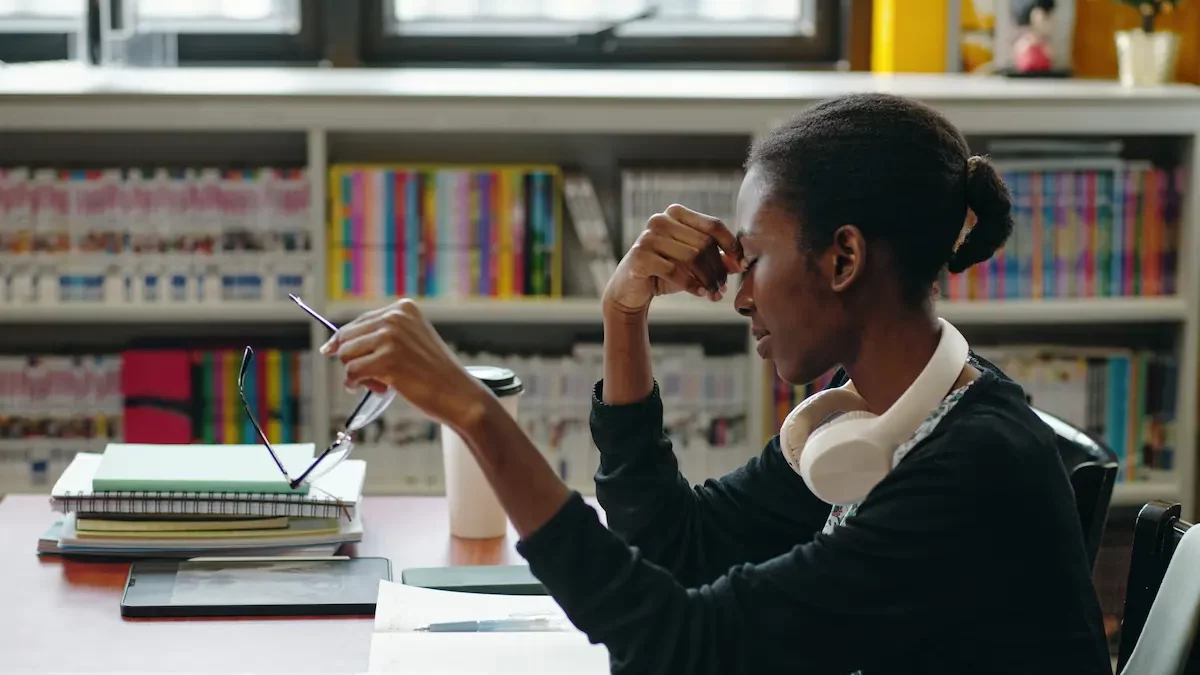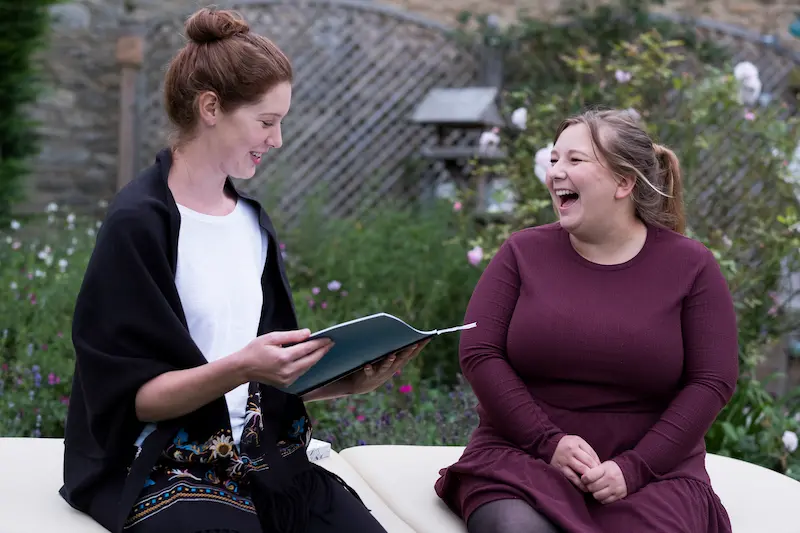Preventing Teacher Burnout: Caring for Yourself While You Care for Others

By: Chauntée Pitts
When I was a teacher, I gave so much of myself every single day. I didn’t just walk into the classroom and deliver lessons. I showed up as a mentor, a listener, a problem-solver, and sometimes even a shoulder to cry on. Teaching was one of the most meaningful roles I’ve ever held, but I’d be lying if I said it wasn’t also incredibly draining at times.
There were days when the weight of it all felt too heavy.
Burnout is real. I know that firsthand. But I also know it doesn’t mean you don’t love what you do. It means you’re human. It means you care. And that’s exactly why, as I reflect on my time in the classroom, I now see how important it is to take care of yourself while you’re busy caring for everyone else.
A Look at the Numbers

When I was still in the classroom, I wasn’t alone in feeling overwhelmed. According to the National Education Association (NEA), 55% of educators have considered leaving the profession earlier than planned because of stress and burnout. The 2023 State of the American Teacher survey by RAND Corporation found that three in four teachers report job-related stress. That’s nearly double the rate of other working adults.
I wasn’t just a number in a statistic. I was that statistic.
So how do you protect your passion, your well-being, and your energy so you can keep doing what you love without losing yourself in the process? That’s the question I found myself asking, and it’s one that every teacher deserves to ask without guilt.
1. Set Boundaries and Stick to Them

As a teacher, I was constantly going above and beyond. It felt like part of the job. But over time, I learned there’s a big difference between being dedicated and completely draining myself. The truth is, the work will always be there, but if you’re not careful, your energy won’t be. You really can’t pour from an empty cup.
I had to learn (sometimes the hard way) that it’s okay to log off.
A 2022 study from Education Week found that 81% of teachers work beyond their contracted hours, often grading and planning late into the night and through the weekends. I remember those nights all too well. Eventually, I started setting a hard stop each evening – no more checking emails, no more grading. It was tough at first, but necessary.
I also started protecting my weekends. That meant saying no to things that weren’t essential, even if I felt guilty at first. The Learning Policy Institute reported that over 60% of teachers who don’t carve out personal time experience emotional exhaustion. I didn’t want to be one of them anymore.
And I had to remind myself that I didn’t need to say yes to everything. Stepping back from committees, clubs, and extra meetings felt like reclaiming pieces of myself. According to a 2023 report by the National Center for Education Statistics, teachers who feel obligated to take on extra duties often report higher stress and lower job satisfaction. I saw that in myself, too.
What I finally understood was this: the time I spent outside of the classroom mattered just as much as the time I spent in it. So I started guarding it … fiercely.
2. Find Small Joys in Your Day

When I was teaching, the big picture could feel overwhelming. There were so many responsibilities, expectations, and pressures pulling me in different directions. Eventually, I started to realize that the joy of teaching wasn’t in checking off every task on my to-do list. It was in the small, quiet moments, like a heartfelt “thank you” from a student, a shared laugh with a colleague in the hallway, and a deep breath before the bell rang.
Those moments saved me more than once.
One thing that helped me shift my mindset was keeping a gratitude journal. Just jotting down a few things each day, no matter how small, helped me focus on what was going right. According to the American Psychological Association, practicing gratitude can reduce stress by 28% and increase job satisfaction. I believe it. It made a real difference for me.
I also created what I called my “feel-good folder.” This was a place to save kind notes, drawings, or uplifting emails from students and families. On the tough days, when I questioned whether I was making a difference, I’d open it up and remember exactly why I started. Research backs this up, too. Teachers who focus on positive student interactions are far less likely to burn out.
And sometimes, I just needed a little reset, like a favorite coffee, five minutes of deep breathing, or a walk around the building at lunch. It didn’t seem like much, but those micro-breaks mattered. The Mayo Clinic even found that short, intentional breaks during the day can boost productivity and cut stress by up to 40%.
Teaching is demanding. There’s no denying that. But there’s still beauty in it. Sometimes, you just have to pause long enough to see it.
3. Lean on Your Community

There were times in my teaching career when I felt completely alone. I was convinced that no one understood the emotional weight I was carrying. But I wasn’t alone. And if you’re in that place now, you’re not either.
One of the most powerful things I did was open up to fellow teachers. They got it in a way no one else could. Whether it was venting about a tough class, swapping lesson ideas, or just sharing a laugh in the break room, those connections reminded me I wasn’t the only one struggling. According to a 2023 EdWeek survey, teachers who regularly connect with colleagues for support are 50% more likely to report job satisfaction. I can see why.
Some educators reach a point where they need more than a chat in the hallway. Some seek professional support. Therapy, coaching, and even online teacher support groups can be positive lifelines, and that’s okay! These colleagues were some of the most creative and caring educators I ever worked with. They took the time to ensure they were in an optimal headspace for teaching. And their students benefited.
Unfortunately, not all educators feel this is an option. The American Federation of Teachers reports that only 20% of teachers feel they have access to adequate mental health resources, despite over 75% experiencing stress-related symptoms. If support is available to you, please don’t hesitate to use it. You deserve it.
Sometimes, when things felt especially heavy, I’d find myself reconnecting with my “why.” I’d think about a student who came out of their shell, a class that finally clicked, or a moment that reminded me why I became a teacher in the first place. That kind of reflection helped me stay grounded. Research shows that teachers who engage in regular professional development and self-reflection are more likely to stay in the profession long-term. I believe that because it was so beneficial for me.
Make Sure to Prioritize Yourself, Too

Teaching is one of the most selfless professions, but that doesn’t mean you have to lose yourself in the process. You deserve the same care and compassion that you give so freely to your students! So, take a deep breath, and know that you’re doing enough. Remember that you are enough, and the work you’re doing matters!
Stay Organized, Stay Balanced
Prevent Teacher Burnout with the Right Tools!
Teaching is demanding, but staying organized can make a world of difference. Visit the School Datebooks website to find free teacher resources that can help you manage your workload and find more time for yourself!
Started in 1985, School Datebooks is the flagship company under the SDI Innovations umbrella. Learn more about what we do through our socials, Facebook, Twitter, YouTube, LinkedIn, Instagram, and TikTok.


